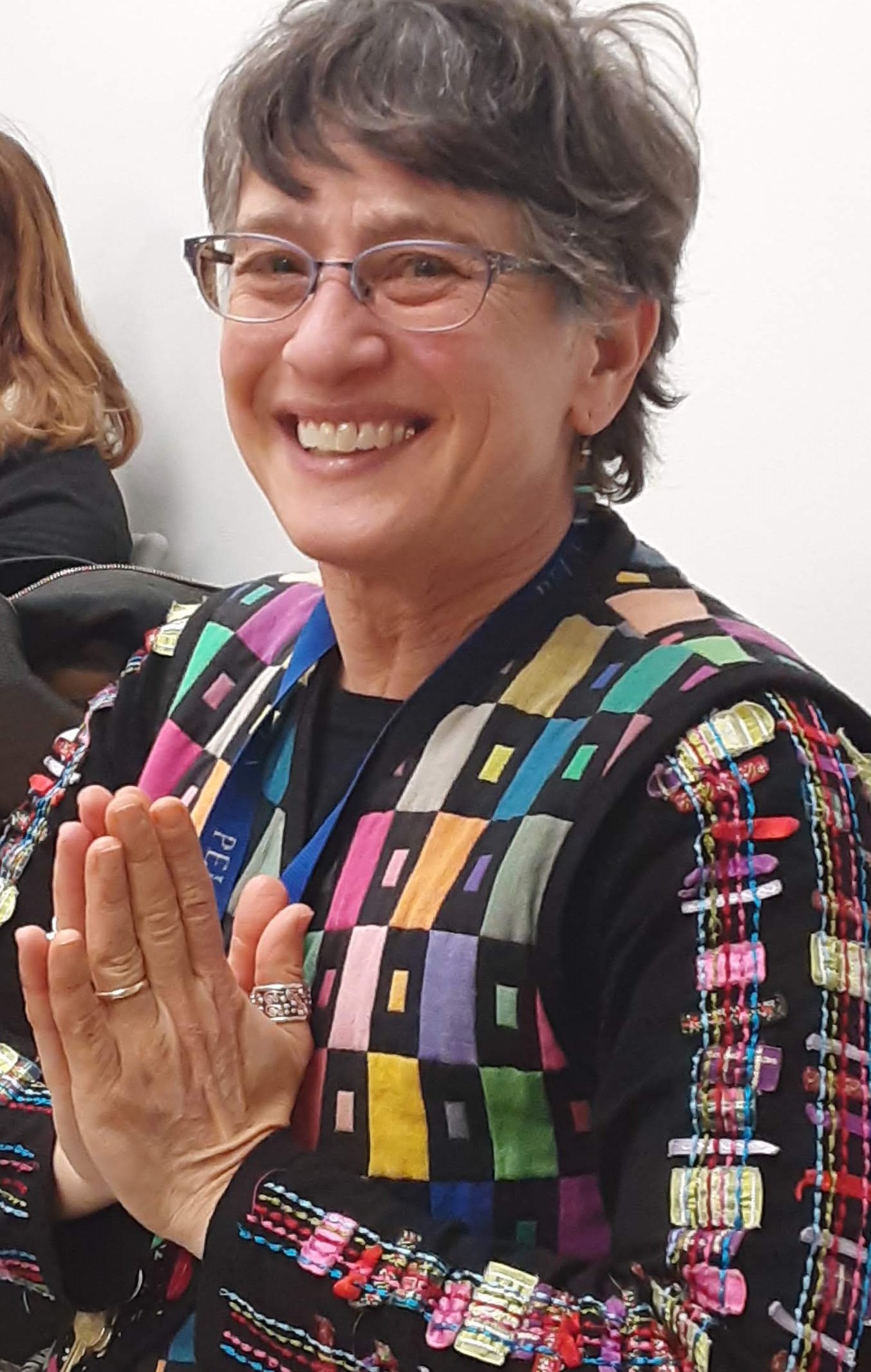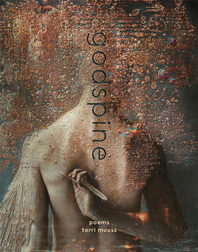ISSN: 1941-4137
POETRY THAT ENACTS THE ARTISTIC AND CREATIVE PURITY OF GLASS
POETRY THAT ENACTS THE ARTISTIC AND CREATIVE PURITY OF GLASS

Devon Balwit's poems can be found here in Glass: A Journal of Poetry as well as in The Worcester Review, The Cincinnati Review, Tampa Review, Apt (long form issue), Tule Review, Sugar House Review, Poetry South, saltfront, and Grist among others. For more, see her website.
June 16, 2020
Edited by Stephanie Kaylor
Edited by Stephanie Kaylor
The Terrible Gift of Proximity: Review of godspine by Terri Muuss

godspine
Terri Muuss
3:A Taos Press, 2020
The title poem of Terri Muuss’ new collection godspine (3:A Taos Press, 2020) speaks of “Our bodies begging / redemption,” and the book’s structure as a whole enacts this process, moving through sections titled “this blood,” “grey matter,” “sacrum,” and “epilogue.”
First, we witness the violated body. The opening poem, “When my Rapist Tried to Friend Me on Facebook,” plunges us into the trauma the speaker endured, but also the cunning with which she survives. Muuss crafts the poem in two columns that can be read both individually and left to right. The left column, later in the poet’s timeline, is left justified and in normal text. The right column, the rape itself, is in italics and fragmented, simultaneously full of holes and enjambed, with many small connecting words missing, leaving the reader feeling disoriented and bruised. Words from the left are echoed or glossed in the right with eerie effect:
After reading his request,
be quiet — void it — , blinds
down, brains blown out
electric impulses — a body’s betrayal —
begin —
beg: Please leave
my socks on)
my first impulse
(why don’t you — bubbling up hole
above — scream, you — the right
scream to do is
why)
was to shut down (...)
As the poem proceeds, the tight left-column margins come to resemble the broken right-column ones as painful memories swamp the present moment.
In “Travel Across Borders,” the child of an abusive father declares: “I already / understood: there is only one way / an elbow can bend.” In “Relentless,” an older instar, preyed upon by flashbacks, admits: “My sleep is chewed // tin foil. I deposit this animal / where I can.” Most importantly, the wounded speaker in “Affidavit” says: “I kept / breathing when I wanted to stop.”
In “grey matter,” the middle section of the collection, Muuss gets down to the hard work of “after.” Damage must be contained and repurposed if one is to survive. In “Small Detonations,” she says: “I beg my scars / to sing back, call them / beloved” and asks: “Where / is the meaning in daily?” How does a survivor do more than exist?
One of my favorite poems, “Write to Save Someone,” comes here. It seems at first to be a suicide note, a woman speaking of the knife she intends to use on her wrist. We soon realize the poem is much more. Written as a series of commands (“say something/talk/tell about…”), we understand that the speaker has not died but rather is annotating survival.
Talk about the razor between your two
still fingers, held like a lover’s
eyelash to blow away for a wish.
Say how you took it at first
& moved it above
your wrist, sawing
the air for practice (...)
The form of the poem echoes slice and blood-flow. Its dance between pain, plan, enactment, and artistic re-enactment are so lovely that any would-be suicide (presumably Muuss as well) couldn’t help but reconsider. One wants to survive to write and read poems like these.
The final section, “sacrum,” moves us yet farther towards the present moment and Muuss’ full reclamation and celebration of her body. It takes us from the “grey matter” of the head to the pelvic locus of pleasure. This is a section of spring, spirit (the sacred), and sensuality. Many of its 15 poems celebrate the healing and generative power of sex. “This love-making,” she writes in “Pre-Creation God,” plants / an endless row of seedlings. They grow, / a thick-walled labyrinth I enter.” Rather than be rent and subtracted by contact with another body, she becomes more than she was before. In “Frog Sex Throat,” Muuss celebrates: “The frog of our sex throat pulsing // the stem of jonquil, feet spread, / greener than the grass it came from.”
Earlier, I wrote that a victim must be cunning to survive. That cunning is a form of creativity and contains the seeds of other types of artfulness. From hers, Muuss has produced a powerful, well-wrought collection.
Visit Terri Muuss' Website
Visit 3:A Taos Press's Website
Glass: A Journal of Poetry is published monthly by Glass Poetry Press.
All contents © the author.
All contents © the author.





